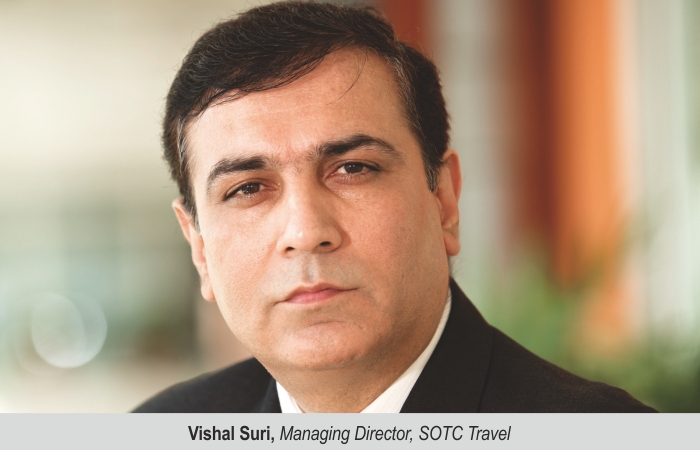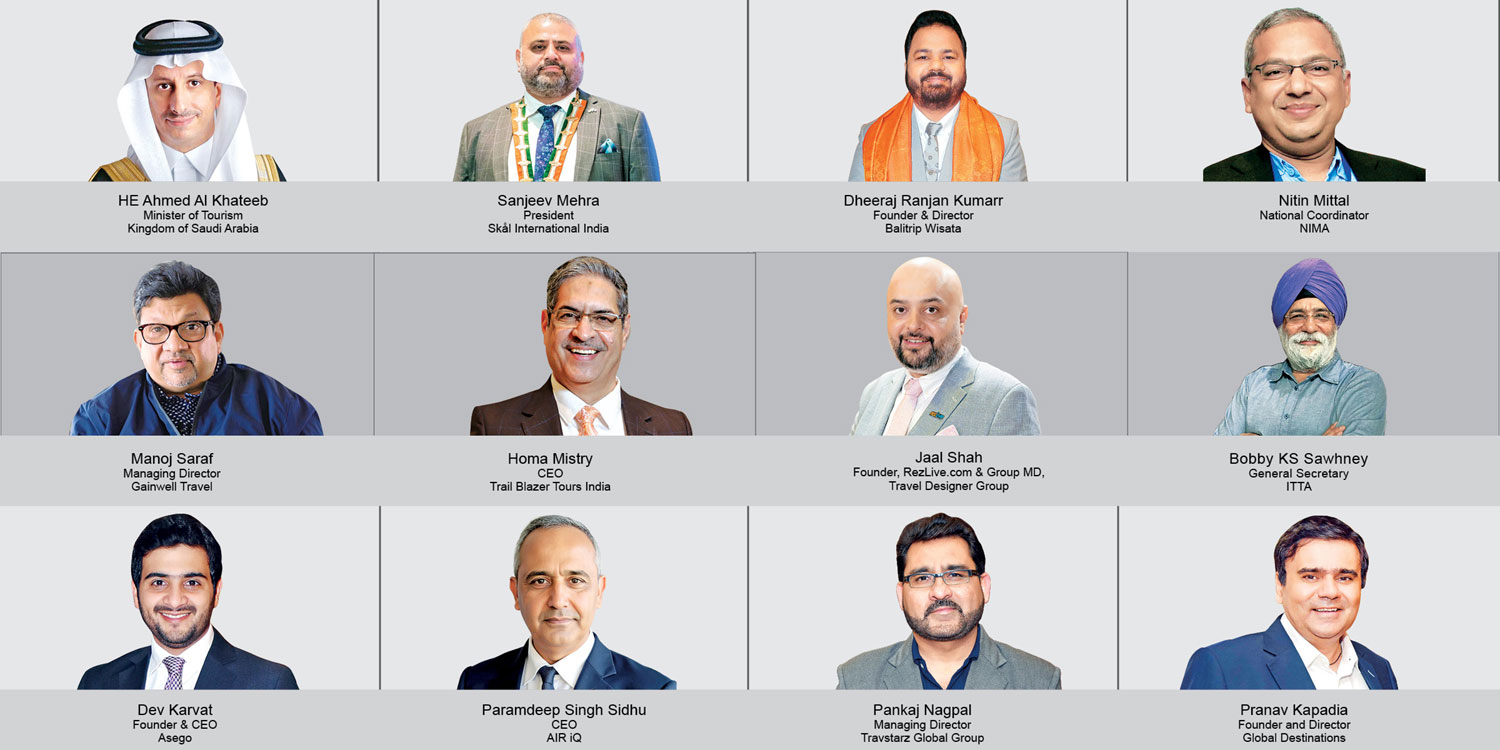Vishal Suri, Managing Director, SOTC Travel, talks about the company’s journey through the first year of the COVID-19 pandemic and how they tweaked their business model to adapt and sustain. What remained crucial during the time was employee safety, customer connectivity and business continuity.
Nisha Verma
Vishal Suri says that while business suddenly came to a standstill about the same time last year, the three things they realised were very important for them were employee safety, customerconnectivity and business continuity. They made sure that all employees worked from home and served the customers by turning into virtual agents. “We encouraged our business leaders and internal teams to start re-imagining their businesses, their processes, and at that point it was very important that we used technology to start giving contactless delivery and interfaces to our customers, allowing them to interact with us. We invested significantly in automation of our processes and technology,” he says.They even began controlling spends. “We went back to our airline partners and started engaging with them at all levels to ask for return of our money. At the same time, we spoke to customers who were seeking refunds and processed these for them, and even gave credit shells as well as vouchers for future travel to those willing to take them,” Suri adds.
Now, SOTC Travel is working with stakeholders to regenerate and revive demand. “We are one of the first companies to tie up with Apollo Clinics, and createan Assured Safe Travel programme. It’s a comprehensive set of travel safety protocols in the current scenario, aimed at giving confidence to customers about us as an organisation and travel as an industry. For this, we brought on board players like Marriott and Accor who have their own independent safety programmes as well,” he shares.
Big M!CE movement
Asserting that safe travel is possible, he cited that they had a huge M!CE movement of 750 Pax to Dubai in January. “We have groups that are regularly travelling to Dubai and Maldives. We even have groups going to Egypt, there is demand in Russia, and the biggest segment of business has been domestic movement. There is a lot of demand amongst Indians to travel despite change in restrictions in testing or quarantine requirements,” Suri informs.
And while the situation is ever-evolving, the MD believes that revival will be slow and steady. “It depends on how soon international borders open up because we are known for outbound. However, we have tweaked our model to focus in the short term on domestic and short-haul destinations like UAE, where we have been able to also deliver large groups. In domestic, we are already seeing huge demand and hotels are being sold out. Goa and Kashmir are doing very well. But, there are supply constraints when it comes to domestic travel. International destinations will start opening up as the vaccination programmes take shape. Our view is that July-September, we will see a lot more of the world opening up. However, the situation is still evolving—IATA is in the process of defining the travel passport, and there could be new travel documents, testing or vaccine certification. Many questions need to be answered,” he comments.
Role of government
Suri strongly believes that the government needs to identify outbound tourism as a sector that creates a lot of employment, generates taxes via GST collection, and now even TCS collection from customers.
“Many things have been done, but there is a need for rationalisation of taxes, especially doing away with TCS which is a long-standing demand. Apart from that there is a threat we are facing from players who are based overseas and selling to Indian customers who book directly and pay via credit card or direct payments. This way, these players are able to completely circumvent the GST and the TCS, which puts an organisation like ours at a disadvantage,” he concludes.
 TravTalk India Online Magazine
TravTalk India Online Magazine





